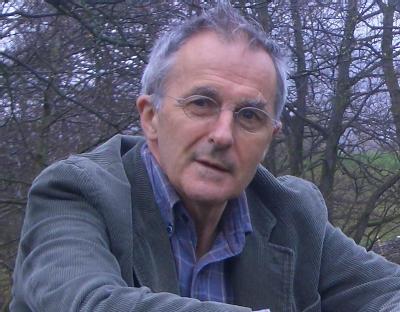“Everywhere we look, impacts are coming faster and harder than we would have predicted just a few years ago.”
Peter Sinclair’s recent Crock of the Week video .
[youtube]YVh7z-0oo6o[/youtube]
Global warming and the future of New Zealand
“Everywhere we look, impacts are coming faster and harder than we would have predicted just a few years ago.”
Peter Sinclair’s recent Crock of the Week video .
[youtube]YVh7z-0oo6o[/youtube]
 Global Climate Change: A Primer may be a book for beginners, but those with an understanding of the issue will find interest in the wide-ranging exposition provided by geologist Orrin Pilkey and his lawyer son Keith. Pilkey’s research area has been shorelines and coastal geology, with a special focus on barrier island coasts, and his previous book The Rising Sea, which I reviewed here, gave clear warning of the possible magnitude of sea level rise this century. This primer has been written to provide a brief and simple account for the layperson of the science of global climate change. The guided tour the authors provide is well managed in terms both of the straightforward language they use and the topics they select to survey.
Global Climate Change: A Primer may be a book for beginners, but those with an understanding of the issue will find interest in the wide-ranging exposition provided by geologist Orrin Pilkey and his lawyer son Keith. Pilkey’s research area has been shorelines and coastal geology, with a special focus on barrier island coasts, and his previous book The Rising Sea, which I reviewed here, gave clear warning of the possible magnitude of sea level rise this century. This primer has been written to provide a brief and simple account for the layperson of the science of global climate change. The guided tour the authors provide is well managed in terms both of the straightforward language they use and the topics they select to survey.
 “I recommend that the BBC takes a less rigid view of ‘due impartiality’ as it applies to science (in practice and not just in its guidelines) and takes into account the non‐contentious nature of some material and the need to avoid giving undue attention to marginal opinion.” This is one of the recommendations of a review commissioned last year by the BBC Trust from Professor Steve Jones, emeritus professor of genetics at University College London. He was asked to assess the impartiality and accuracy of BBC science coverage across television, radio and the internet. His review and the Trust report which responds to it have now been published, along with the news that the BBC has accepted his recommendations.
“I recommend that the BBC takes a less rigid view of ‘due impartiality’ as it applies to science (in practice and not just in its guidelines) and takes into account the non‐contentious nature of some material and the need to avoid giving undue attention to marginal opinion.” This is one of the recommendations of a review commissioned last year by the BBC Trust from Professor Steve Jones, emeritus professor of genetics at University College London. He was asked to assess the impartiality and accuracy of BBC science coverage across television, radio and the internet. His review and the Trust report which responds to it have now been published, along with the news that the BBC has accepted his recommendations.
 Some things you can rely on: death, taxes and Garth George. Yes, that wondrous old curmudgeon has published another piece that owes a heavy debt to the work of another. In the Otago Daily Times a couple of weeks ago he devoted an entire column to an espousal of a climate sceptic rant by Professor William Happer, recently published at a US right wing Christian web site. Let us not be too distracted by the fact that Happer’s opus is nonsense — that is what we expect of the wilder fringes of climate denial — but let’s look at the treatment Garth gives it: three short introductory sentences, then:
Some things you can rely on: death, taxes and Garth George. Yes, that wondrous old curmudgeon has published another piece that owes a heavy debt to the work of another. In the Otago Daily Times a couple of weeks ago he devoted an entire column to an espousal of a climate sceptic rant by Professor William Happer, recently published at a US right wing Christian web site. Let us not be too distracted by the fact that Happer’s opus is nonsense — that is what we expect of the wilder fringes of climate denial — but let’s look at the treatment Garth gives it: three short introductory sentences, then:
Prof Happer’s dissertation on greenhouse gasses and global warming runs to some 4500 words.
Here are some highlights.
His introduction is 153 words out of the 851 in the column (a mere 18%). The remainder is a thinly paraphrased or directly quoted lift from Happer’s article. Garth’s serial plagiarism of the work of others would be funny if it wasn’t being paid for by respected newspapers. We know that Garth is a fool, because we can read what he writes about climate change. But he is also making fools of some of the leading newspapers in this country. Who is the more foolish: the plagiarist or the people who pay him?
 Australian scientists have begun a push back against climate denial. Over at the excellent The Conversation site (a hugely interesting experiment in bringing academic expertise to the news cycle), Stephan Lewandowsky and a long list of prominent Australian academics have kicked off a series of articles “from the nation’s top minds on the science behind climate change and the efforts of “sceptics” to cloud the debate” titled Clearing up the Climate Debate.
Australian scientists have begun a push back against climate denial. Over at the excellent The Conversation site (a hugely interesting experiment in bringing academic expertise to the news cycle), Stephan Lewandowsky and a long list of prominent Australian academics have kicked off a series of articles “from the nation’s top minds on the science behind climate change and the efforts of “sceptics” to cloud the debate” titled Clearing up the Climate Debate.
Beginning today, The Conversation will bring much-needed and long-overdue accountability to the climate “sceptics.”
For the next two weeks, our series of daily analyses will show how they can side-step the scientific literature and how they subvert normal peer review. They invariably ignore clear refutations of their arguments and continue to promote demonstrably false critiques.
We will show that “sceptics” often show little regard for truth and the critical procedures of the ethical conduct of science on which real skepticism is based.
The individuals who deny the balance of scientific evidence on climate change will impose a heavy future burden on Australians if their unsupported opinions are given undue credence.
Not to mention imposing a heavy future burden on everyone else on the planet…
Lewandowsky’s introduction was followed in short order by The greenhouse effect is real: here’s why, by Karl Braganza of the Bureau of Meteorology — an admirably succinct statement of the facts of the matter.
The climate of Earth is now a closely monitored thing; from instruments in space, in the deep ocean, in the atmosphere and across the surface of both land and sea.
It’s now practically certain that increasing greenhouse gases have already warmed the climate system.
That continued rapid increases in greenhouse gases will cause rapid future warming is irrefutable.
This is an important series of articles: one worth following in detail. Congrats to Steve and everyone involved.
Bad Behavior has blocked 3741 access attempts in the last 7 days.